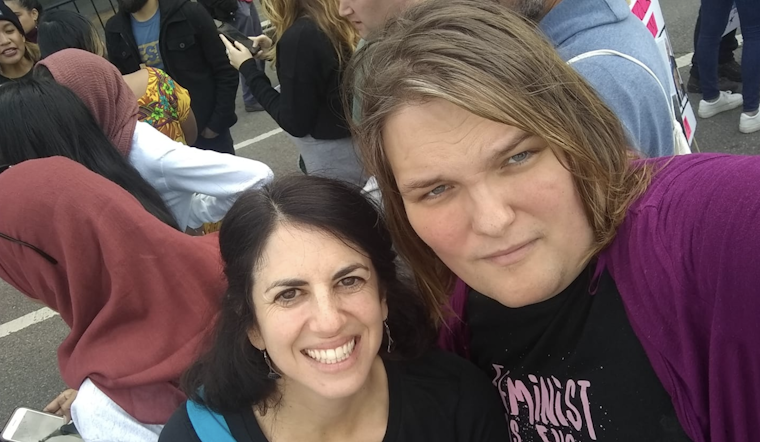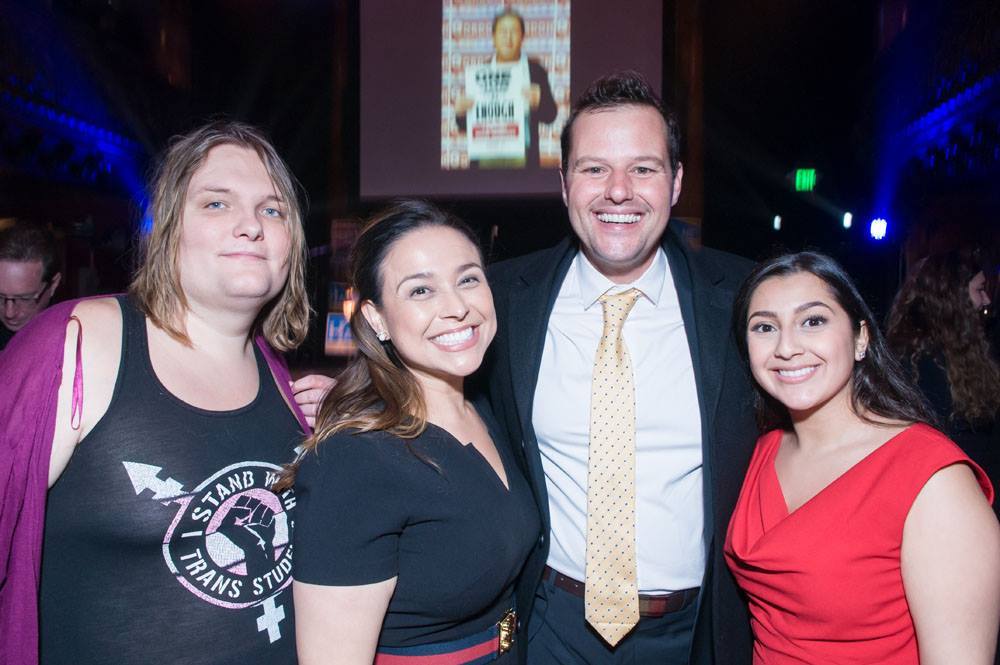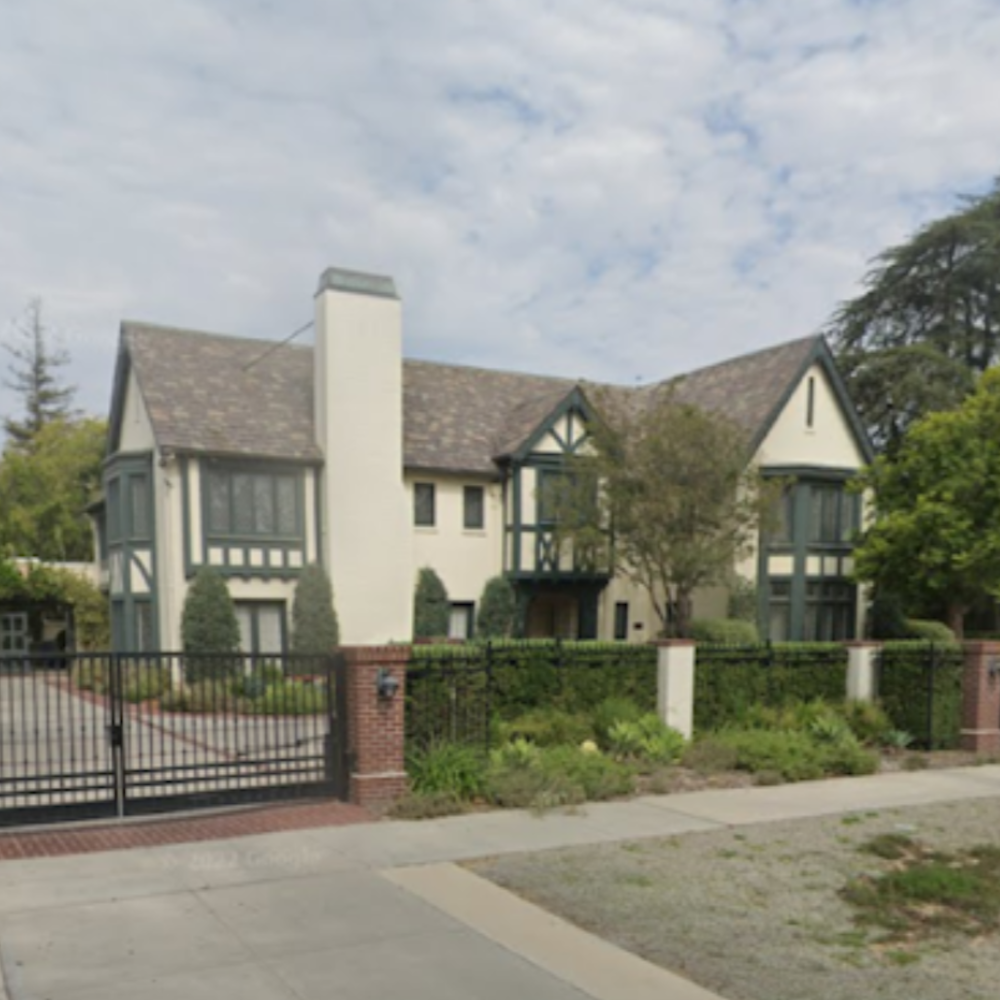
Like many Single Room Occupancy (SRO) hotel tenants in San Francisco, Jordan Davis struggles to get by.
Davis, who is disabled and lives on a fixed income, pays over half of her income in rent each month to her landlord, the nonprofit Tenderloin Housing Clinic.
With little left over for food and other expenses, Davis often relies on a food bank that comes to her hotel each Wednesday to ensure she has enough to eat. As a vegan, she struggles to assemble meals with the provided food, which is "nutritionally inadequate," she said.
“This is not normal," Davis said of the amount she spends on rent. "I end up actually hungry at the end of the month, and it has affected my mental health.”

In order to advocate for better conditions in San Francisco's SROs, Davis became one of two tenant representatives to the city's advisory SRO Task Force. In April, the Board of Supervisors unanimously reappointed her to the Task Force for an indefinite term.
But she says she’s struggled to get community groups to pay attention to the poor conditions in the city's SROs, and the financial challenges facing the low-income and disabled people who reside in them.
So she's decided to go on a hunger strike. She hasn't eaten anything since Thursday afternoon, and says she plans to continue until the Board of Supervisors makes a statement in support of her proposal: that the city cap rents for all SRO tenants at 30% of their monthly income.
Davis chose the 30% figure from the Department of Housing and Urban Development (HUD)’s guidelines for rental assistance. HUD defines renters paying more than 30% of their pre-tax income in rent as “rent-burdened,” and renters like Davis, paying more than 50%, as “severely rent-burdened.”

With the help of a sunshine request, Davis has found that rents in the city's SROs vary wildly. Some are already capped at 30% of residents’ income, while others have fixed rents that can run as high as $673 per month. For residents on fixed incomes — often as little as $1,000 per month — the high costs can be devastating.
Cheryl Shanks, an SRO tenant who receives State Disability Insurance (SDI), makes just $1,130 per month. While her building's management caps maximum rents at 30% of tenants' incomes, she knows many disabled people in buildings with different management who pay more.
SDI payments are a percentage of the amount you made when you last worked, Shanks explained. Formerly a teacher, she first became disabled in the mid-1990s, and her SDI income is now a fraction of her salary at the time: $17/ hour.
Like Davis, Shanks often finds herself hungry at the end of the month. And unlike some of her fellow tenants, who receive federal Social Security (SSI) disability payments, she cannot apply for food stamps. (Whether a person with disabilities can enroll in SDI versus SSI is dependent on the number of years they worked and made contributions to Social Security.)
“Rent shouldn’t be more than 30% — that’s enough," Shanks said. "We need help."
Davis' rent relief proposal has found some support. The local Democratic Party voted unanimously to endorse it at their March meeting. And District 6 Supervisor Matt Haney has introduced a budget proposal that includes capping rents at all the master-leased residential hotels under the jurisdiction of the Department of Homelessness and Supportive Housing. (Haney's office did not respond to a request for comment by press time.)
At $7.5 million, the cost of Haney's proposed SRO rent cap would constitute just 0.006% of the city’s annual budget, which swelled to $11 billion this year.
“$7 million is chump change in this city,” Davis said.

Though Davis hasn't faced any outward opposition to her proposal, she's concerned it might fail to receive the support necessary to pass. City Hall faces a wide variety of community demands during the budgeting process, and not all proposals get funded.
Davis said she's tried other methods of bringing public attention to the proposal, but when those failed, she resorted to the drastic measure of a hunger strike.
Both Davis and Shanks say they're frustrated with how challenging it is to get the general public to pay attention to SRO tenants' concerns. While community groups promote affordable housing, little attention is paid to the fact that SRO tenants still cannot afford so-called "affordable" rents, Shanks said.
“I am hunger-striking to protest not only the underlying injustice in low-income housing, but the community's neglect,” Davis said.

The next step for Davis' proposal would be earning approval for a non-binding recommendation from the SRO Task Force to the Board of Supervisors.
She's hoping to get the issue on the agenda at the Task Force's next meeting, on Thursday, June 20. The meeting, which is open to the public, will be held at 9 a.m. at 1650 Mission Street, 4th Floor, Conference Room #431.
Receiving the SRO Task Force's endorsement would be a positive sign for Supervisor Haney's $7.5 million budget proposal, which will be heard by the Board of Supervisors at an all-day hearing slotted for Monday, June 24.
Davis, who has currently not eaten for six days, hopes her hunger strike will mark the last time she has to go hungry.
“I'm sick and tired of me and my fellow tenants starving at the end of the month because our rent consumes anywhere from half to 80% of our income," she said.









